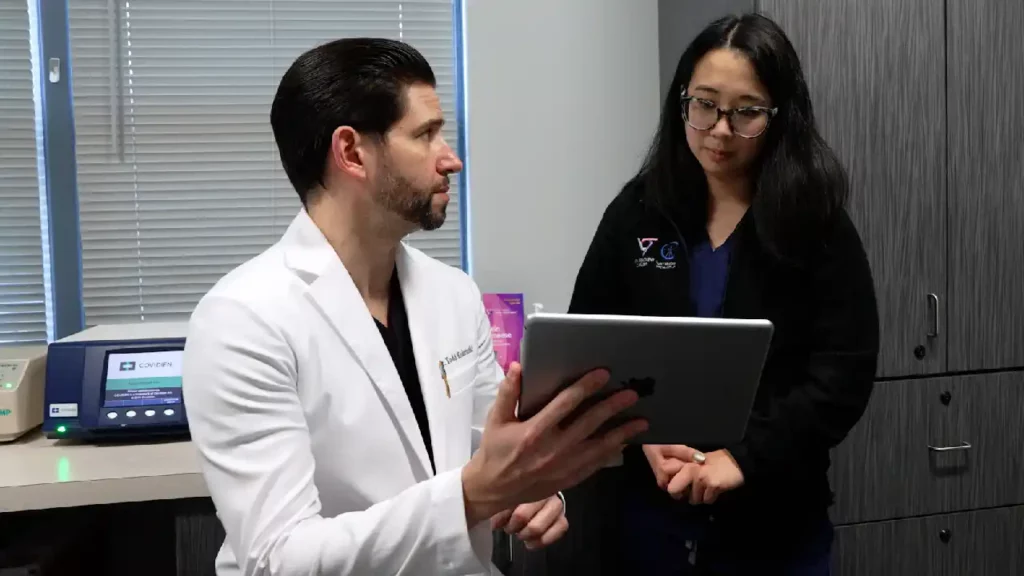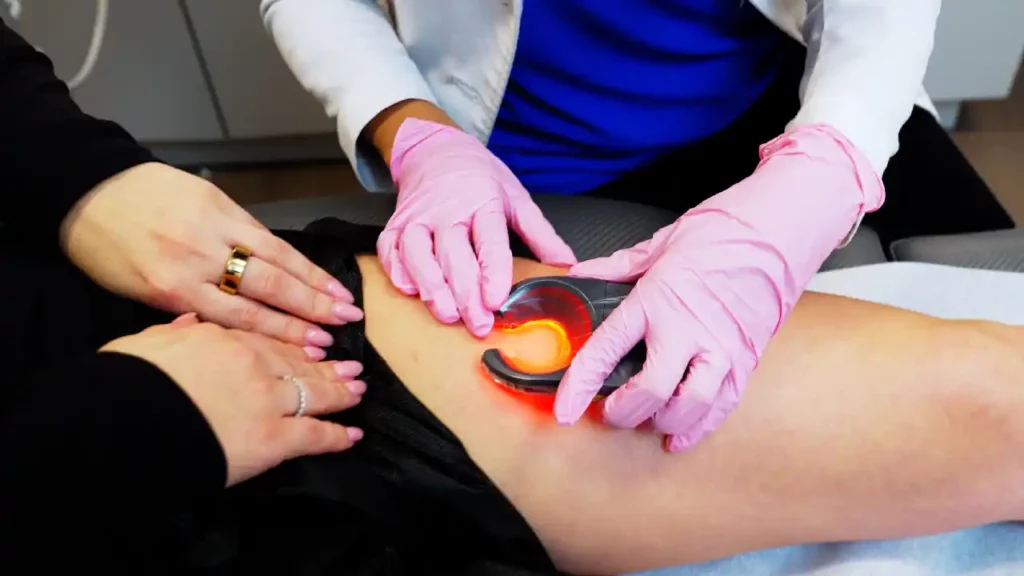Stress Reduction Techniques for Veins: Calming Techniques for Improved Circulation
Do you often find yourself feeling stressed and anxious and wonder how it might be affecting your overall health? Stress can take a toll on various aspects of your well-being, including your cardiovascular system. In this article, we explore the connection between stress and vein health and provide stress reduction techniques for veins to help improve circulation.
The Link Between Stress and Vein Health
Chronic stress triggers a range of physiological responses in your body, including the release of stress hormones such as cortisol. These hormones can have negative effects on your vascular system, specifically your veins. Stress can affect your veins in numerous ways:
Muscle Tension
Stress triggers the body’s fight-or-flight response, causing the muscles throughout your body to tense up, including those in your legs. This tensing of muscles, known as muscle tension, is the body’s way of preparing for action in response to perceived threats. However, prolonged muscle tension can restrict blood flow in the affected areas. The constriction of leg muscles can impede the return of blood to the heart through the veins, making it more challenging for the circulatory system to function optimally.
Blood Pressure
Stress, particularly chronic stress, can lead to elevated blood pressure levels. This occurs because stress hormones, such as cortisol and adrenaline, prompt the body to increase heart rate and constrict blood vessels. The elevation in blood pressure can have detrimental effects on vein health by putting additional strain on the vascular system. Over time, high blood pressure can weaken the walls of veins, making them less efficient at transporting blood and increasing the risk of various vascular issues.
Inflammation
Chronic stress can initiate a cascade of inflammatory responses in the body. When under stress, the immune system releases pro-inflammatory chemicals as part of the body’s natural defense mechanism. However, the prolonged presence of these inflammatory markers can damage the inner lining of blood vessels, including veins. This damage can contribute to conditions like venous inflammation, which impairs the proper function of veins and may lead to complications such as blood clots or varicose veins.
Clot Formation
One of the most serious consequences of stress on vein health is the potential for clot formation. Stress increases the likelihood of blood clot formation. When blood clots develop in veins, they can obstruct blood flow, leading to potentially life-threatening conditions like deep vein thrombosis (DVT). DVT occurs when a blood clot forms in a deep vein, usually in the leg, and can cause pain, swelling, and, if the clot dislodges and travels to the lungs, a pulmonary embolism, which is a medical emergency.
Now that you understand the potential harm that stress can inflict on your veins let’s explore some effective stress reduction techniques to promote improved circulation.
Are you interested in getting more information about your condition or a treatment?
Fill the form below to start!
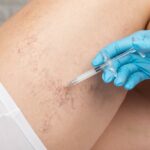
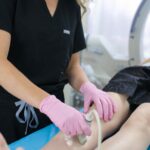
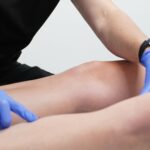
Stress Reduction Techniques:
- Deep Breathing Exercises: Deep breathing exercises can quickly calm your body’s stress response and promote relaxation. Find a quiet space, sit or lie down, and take slow, deep breaths. Inhale deeply for a count of four, hold for a count of four, and exhale for a count of four. Repeat this process for several minutes until you feel more relaxed.
- Meditation: Meditation is a powerful tool for reducing stress and anxiety. Dedicate a few minutes each day to meditation, focusing on your breath, or a calming mantra. Meditation can help lower your cortisol levels and reduce muscle tension.
- Progressive Muscle Relaxation: Progressive muscle relaxation involves systematically tensing and then relaxing different muscle groups in your body. This practice can help alleviate muscle tension caused by stress and improve circulation.
- Yoga: Yoga combines physical postures, breathing exercises, and meditation to promote relaxation and reduce stress. Regular yoga practice can help improve circulation by increasing flexibility and reducing muscle tension.
- Aromatherapy: Certain essential oils, such as lavender and chamomile, have been shown to have a calming effect on the nervous system. Use a diffuser or apply diluted essential oils to your skin to experience their soothing benefits.
- Exercise: Regular physical activity is a natural stress reliever. Engaging in aerobic exercises like walking, jogging, or swimming can improve blood circulation and reduce stress.
- Nutrition: A well-balanced diet can support vein health and reduce stress. Incorporate foods rich in antioxidants, such as berries and leafy greens, to combat inflammation. Additionally, maintaining a healthy weight can reduce pressure on your veins.
- Professional Help: If stress is significantly affecting your quality of life, consider seeking help from a mental health professional. Therapy or counseling can provide you with valuable coping strategies and support.
Lifestyle Changes for Long-Term Vein Health:
- Elevate Your Legs: If you experience swelling or discomfort in your legs, elevating them above heart level can help reduce pressure on your veins and improve blood flow. Try to elevate your legs for 15-20 minutes several times a day.
- Compression Stockings: Compression stockings can help support your veins by improving blood flow and preventing blood from pooling in the lower extremities. Consult our vein doctors to determine if compression stockings are right for you.
- Regular Physical Activity: Maintaining an active lifestyle is crucial for vein health. Regular exercise helps strengthen your calf muscles, which play a key role in aiding blood flow back to the heart. Aim for at least 30 minutes of moderate exercise most days of the week.
- Maintain a Healthy Weight: Excess body weight can put added pressure on your veins, particularly in the lower body. Losing weight can alleviate this strain and improve circulation.
- Avoid Prolonged Sitting or Standing: If your job requires prolonged periods of sitting or standing, take breaks to move around and stretch your legs. Simple movements can prevent blood from pooling in your veins.
- Stay Hydrated: Proper hydration is essential for maintaining vein health. Drinking enough water helps keep your blood at the right consistency, preventing it from becoming too thick and increasing the risk of clot formation.
Can Stress Really Affect My Circulation?
Yes, stress can have a significant impact on your veins and circulation. When you experience stress, your body’s physiological responses, such as increased muscle tension, elevated blood pressure, inflammation, and heightened clotting tendencies, can collectively affect the health of your veins. Chronic stress can contribute to conditions like varicose veins, venous inflammation, and even deep vein thrombosis (DVT).
Can Stress Reduction Techniques Also Improve the Appearance of Varicose Veins?
Yes, some stress reduction techniques can help improve the appearance of varicose veins by reducing inflammation and muscle tension. However, it’s important to note that stress reduction alone may not eliminate varicose veins entirely. If you’re concerned about the appearance of varicose veins or experiencing discomfort, please consult our vein doctors to explore the appropriate minimally invasive vein treatment options.
Consult Our Vein Doctors to Improve Vein Health
The Vein Treatment Clinic is a group of state-of-the-art vein clinics dedicated to helping you achieve and maintain optimal venous health. Our board-certified vein doctors carefully examine your leg veins, discuss your goals and concerns, review your medical history, and administer ultrasound tests to determine the root cause of your vein problems.
If you have existing vein conditions, we offer minimally invasive vein treatments to address the concerns. But even if you don’t have existing vein conditions, we offer personalized lifestyle recommendations to reduce your risk of vein problems. We have offices in New York City, New Jersey, Long Island, California, and Maryland — schedule an appointment at your nearest vein treatment clinic to improve your vein health.







